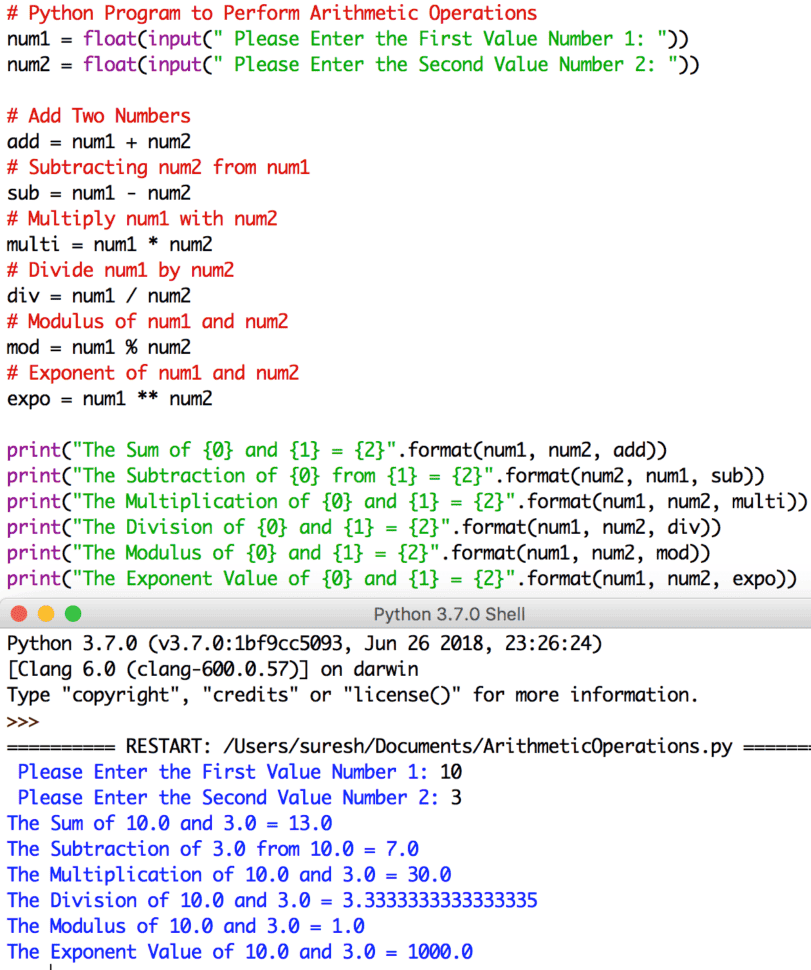Write a Python Program to Perform Arithmetic Operations on numeric values with a practical example.
Python Program to Perform Arithmetic Operations
This python program allows the user to enter two numeric values of data type float. Next, we are going to use those two values to perform the Arithmetic Operations such as Addition, Subtraction, Multiplication, Exponent, Modulus, and Division.
# Python Program to Perform Arithmetic Operations
num1 = float(input(" Please Enter the First Value Number 1: "))
num2 = float(input(" Please Enter the Second Value Number 2: "))
# Add Two Numbers
add = num1 + num2
# Subtracting num2 from num1
sub = num1 - num2
# Multiply num1 with num2
multi = num1 * num2
# Divide num1 by num2
div = num1 / num2
# Modulus of num1 and num2
mod = num1 % num2
# Exponent of num1 and num2
expo = num1 ** num2
print("The Sum of {0} and {1} = {2}".format(num1, num2, add))
print("The Subtraction of {0} from {1} = {2}".format(num2, num1, sub))
print("The Multiplication of {0} and {1} = {2}".format(num1, num2, multi))
print("The Division of {0} and {1} = {2}".format(num1, num2, div))
print("The Modulus of {0} and {1} = {2}".format(num1, num2, mod))
print("The Exponent Value of {0} and {1} = {2}".format(num1, num2, expo))
For this Python Program for Arithmetic Operations example, we assigned num1 as 10, and num2 is 3. Please refer to the python program page to see the remaining programs.

